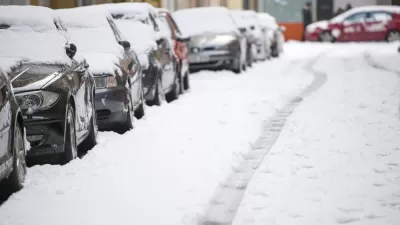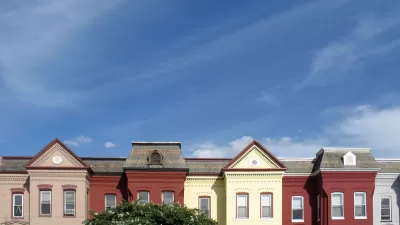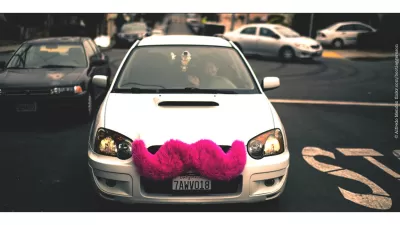A rise in the amount of jobs available in the suburbs has more city dwellers in New York doing the "reverse commute" and traveling from home in the city to work in the 'burbs.
There are about "300,000 people who live in New York City and make their way to jobs in the suburbs every day, part of a fast-growing segment of the work force that has turned the traditional idea of bedroom communities on its head. The group includes young workers in high-skilled professions, as well as tens of thousands of others up and down the income spectrum who prefer city living or cannot afford the suburban dream."
"Planners and business groups across the region have increasingly come to realize that these commuters are a critical part of their economic prospects and are vigorously promoting transportation initiatives to encourage them. But they face considerable obstacles."
"Many who travel to work against the tide have arduous commutes - long drives on crowded highways, or, for those who do not want or cannot afford cars, combinations of trains, buses, car pools and taxicabs cobbled together on transit systems that were not designed to accommodate them."
"In spite of that, the number of city residents working in the suburbs grew 12 percent from 2000 to 2005, according to census figures calculated by the Queens College sociology department for The New York Times. About one in 11 city workers has a job in the suburbs, and the number is growing faster than any other segment of commuters."
FULL STORY: The Big Commute, in Reverse

Planetizen Federal Action Tracker
A weekly monitor of how Trump’s orders and actions are impacting planners and planning in America.

Map: Where Senate Republicans Want to Sell Your Public Lands
For public land advocates, the Senate Republicans’ proposal to sell millions of acres of public land in the West is “the biggest fight of their careers.”

Restaurant Patios Were a Pandemic Win — Why Were They so Hard to Keep?
Social distancing requirements and changes in travel patterns prompted cities to pilot new uses for street and sidewalk space. Then it got complicated.

Platform Pilsner: Vancouver Transit Agency Releases... a Beer?
TransLink will receive a portion of every sale of the four-pack.

Toronto Weighs Cheaper Transit, Parking Hikes for Major Events
Special event rates would take effect during large festivals, sports games and concerts to ‘discourage driving, manage congestion and free up space for transit.”

Berlin to Consider Car-Free Zone Larger Than Manhattan
The area bound by the 22-mile Ringbahn would still allow 12 uses of a private automobile per year per person, and several other exemptions.
Urban Design for Planners 1: Software Tools
This six-course series explores essential urban design concepts using open source software and equips planners with the tools they need to participate fully in the urban design process.
Planning for Universal Design
Learn the tools for implementing Universal Design in planning regulations.
Heyer Gruel & Associates PA
JM Goldson LLC
Custer County Colorado
City of Camden Redevelopment Agency
City of Astoria
Transportation Research & Education Center (TREC) at Portland State University
Camden Redevelopment Agency
City of Claremont
Municipality of Princeton (NJ)





























